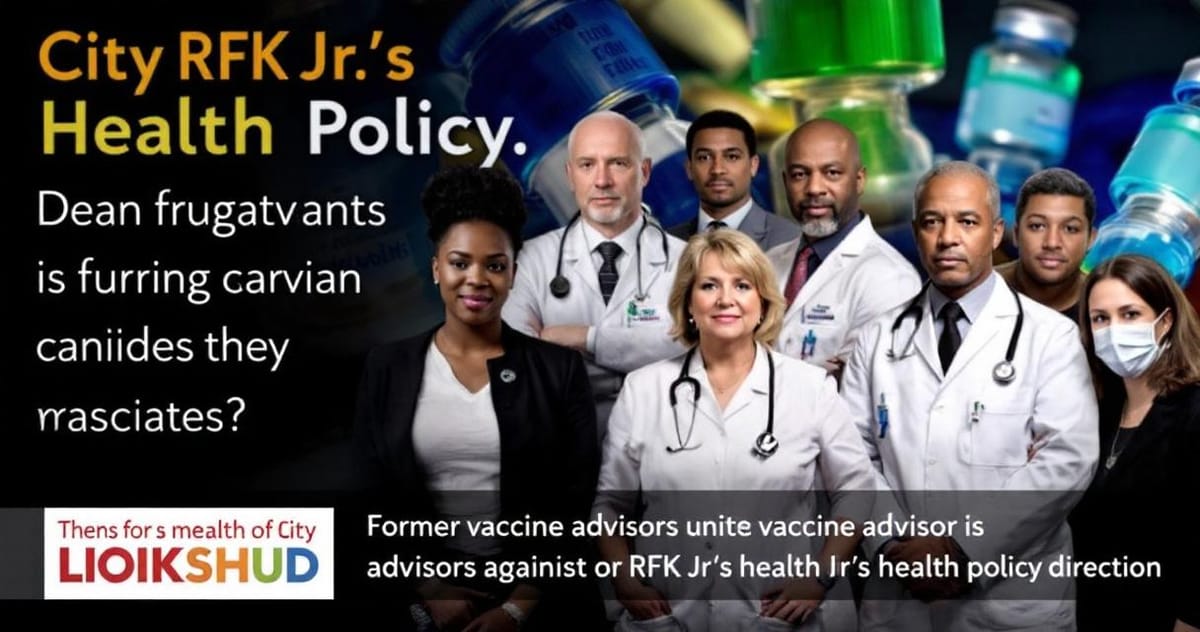In an extraordinary show of unity, all 17 vaccine advisors recently dismissed from their federal positions have joined forces to publicly condemn what they describe as "destabilizing decisions" by Robert F. Kennedy Jr., raising alarm bells about the future of America's public health infrastructure.
A Historic Rebuke from Public Health Experts
The coalition of former advisors, who collectively represent over 300 years of experience in immunology, epidemiology, and public health policy, released a joint statement this week expressing "grave concerns" about recent policy shifts under Kennedy's leadership. This marks the first time in modern history that an entire advisory panel has united post-dismissal to challenge health policy decisions at the federal level.
"We cannot stand idly by while decades of scientific progress and public health achievements are systematically undermined," the statement reads. The advisors, who previously served on the Advisory Committee on Immunization Practices (ACIP), warn that recent decisions could "erode public trust in life-saving vaccines and compromise the health of millions of Americans."
Key Concerns Raised by the Coalition
Vaccine Schedule Modifications
The former advisors specifically cite proposed changes to childhood immunization schedules as a primary concern. They argue that any modifications not based on rigorous scientific evidence could leave children vulnerable to preventable diseases that have been largely eliminated in the United States.
Transparency and Scientific Process
Another major point of contention involves what the coalition describes as a "departure from evidence-based decision-making." The advisors claim that traditional peer review processes and data transparency requirements have been weakened, potentially allowing policy decisions to be influenced by factors other than scientific merit.
International Health Security
The group also warns about potential impacts on global health security, noting that U.S. vaccine policy has historically served as a model for developing nations. "Destabilizing our immunization infrastructure doesn't just affect Americans—it sends ripple effects across the global health community," noted one coalition member.
The Broader Context
This unprecedented action comes amid a period of significant transition in federal health policy. The dismissal of the entire ACIP panel last month shocked the public health community, with many experts calling it an unprecedented move that breaks with decades of tradition in maintaining continuity of scientific expertise.
The coalition's statement arrives as several states report upticks in vaccine-preventable diseases, including measles and whooping cough. Public health officials in at least 12 states have expressed concerns about declining vaccination rates, which they attribute partly to mixed messaging from federal authorities.
Response and Reactions
While Kennedy's office has not yet responded to the coalition's specific allegations, supporters of the current administration argue that questioning established protocols is necessary for innovation and addressing public concerns about vaccine safety. They maintain that the changes represent a "new era of transparency and patient choice."
However, major medical organizations, including the American Medical Association and the American Academy of Pediatrics, have sided with the former advisors, issuing their own statements supporting evidence-based vaccine policy.
Looking Ahead: Implications for Public Health
The coalition has announced plans to establish an independent watchdog group to monitor and report on federal health policy decisions. They've also launched a public education campaign aimed at combating what they term "dangerous misinformation" about vaccine safety and efficacy.
As this situation continues to unfold, the divide between traditional public health approaches and new policy directions appears to be widening. The coming months will likely prove crucial in determining the long-term trajectory of American public health policy and its impact on disease prevention efforts nationwide.
The unprecedented nature of this coalition—bringing together advisors who often held differing views on specific policies but now unite in opposition—underscores the severity of their concerns and marks a pivotal moment in the ongoing debate over the future of public health in America.
Target Audience: Health policy professionals, medical practitioners, public health advocates, concerned parents, health journalists, and politically engaged citizens interested in health policy developments.
